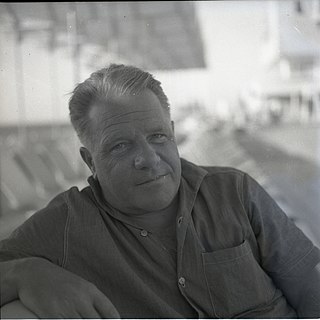A Quote by Kerry James Marshall
What I preserved in the figures [at Invisible Man] are those white eyes and white teeth, because that's still connected to the way in which blackness, in the extreme, has been stigmatized and the way it was often joked that you couldn't see black people in the dark until they had their eyes open or were smiling.
Related Quotes
For black people who are really dark - and a lot of black people were averse to be dark skinned - it was believed that you'd be so dark that you couldn't see them at night unless they were smiling or you could see the whites of their eyes. At one time, it was a sharp comic barb that got levelled at some people.
I've never seen a sincere white man, not when it comes to helping black people. Usually things like this are done by white people to benefit themselves. The white man's primary interest is not to elevate the thinking of black people, or to waken black people, or white people either. The white man is interested in the black man only to the extent that the black man is of use to him. The white man's interest is to make money, to exploit.
When I was in Mecca I noticed that their, they had no color problem. That they had people there whose eyes were blue and people there whose eyes were black, people whose skin was white, people whose skin was black, people whose hair was blond, people whose hair was black, from the whitest white person to the blackest black person.
That was the thing: Once, the difference between light and dark had been basic. One was good, one bad. Suddenly, though, things weren’t so clear. The dark was still a mystery, something hidden, something to be scared of, but I’d come to fear the light, too. It was where everything was revealed, or seemed to be. Eyes closed, I saw only the blackness, reminding me of this one thing, the most deep of my secrets; eyes open, there was only the world that didn’t know it, bright, inescapable, and somehow, still there.
I can't turn around without hearing about some 'civil rights advance's White people seem to think the black man ought to be shouting 'hallelujah's Four hundred years the white man has had his foot-long knife in the black man's back — and now the white man starts to wiggle the knife out, maybe six inches! The black man's supposed to be grateful? Why, if the white man jerked the knife out, it's still going to leave a scar!
There is not a history of black intellectuals being allied with dominant forces to hold white people in social and cultural subordination for a few centuries. Second, the "our" of black folk has always been far more inclusive that the "our" of white folk. For instance, there would have hardly been a need for "black" churches if "white" churches had meant their "our" for everybody - and not just white folk. But "our" black churches have always been open to all who would join. The same with white society at every level.
…“white supremacy” is a much more useful term for understanding the complicity of people of color in upholding and maintaining racial hierarchies that do not involve force (i.e slavery, apartheid) than the term “internalized racism”- a term most often used to suggest that black people have absorbed negative feelings and attitudes about blackness. The term “white supremacy” enables us to recognize not only that black people are socialized to embody the values and attitudes of white supremacy, but we can exercise “white supremacist control” over other black people.
That is another theme in the book [Dreams from My Father]. How do we exercise more empathy in our public discourse? How do we get the black to see through the eyes of the white? Or the citizen to see through the eyes of the immigrant? Or the straight to see through the eyes of the gay? That has always been a struggle in our politics.





































